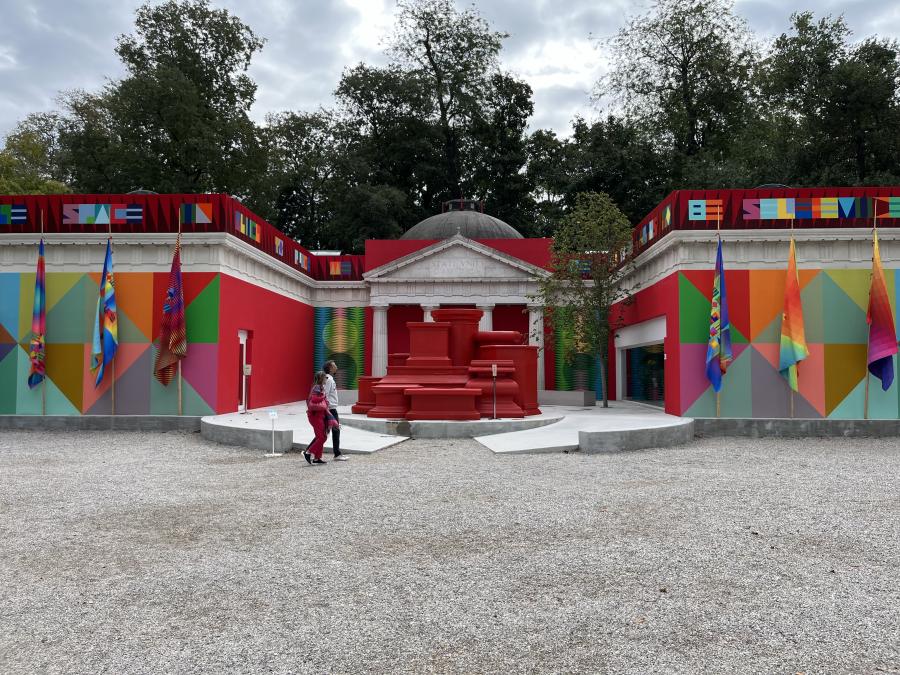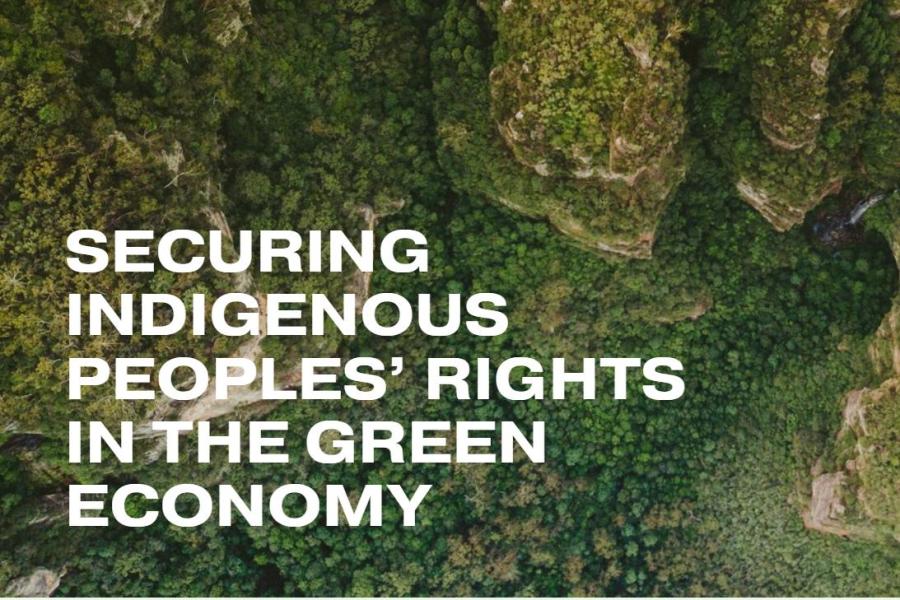On May 27, 1998, Cultural Survival's Education Program held its third annual student conference at the Harvard Graduate School of Education's Gutman Library. Over 200 students and teachers from 10 secondary schools in New England attended to discuss the U'wa's struggle over land issues and oil drilling in Colombia. The U'wa are in crisis and wish to educate international governments and young people about this situation.
We invited Berito Kubaruwa, President of the U'wa Traditional Authority, and Abadio Green, President of ONIC to present the indigenous side of this conflict. This enabled students to understand the complex and integral role the environment plays in U'wa culture. Berito opened the day with a prayer and song, and Abadio closed the conference with a traditional coca dance, giving students a taste of U'wa culture.
In order to come to a consensus on this issue, all sides of this international problem were presented to the students. Ted Macdonald, a member of the Harvard/OAS team mediating in the situation, spoke about the organization's role in the issue. Martha Soto from Colombia Vive, spoke about human rights in Colombia and what students and activists can do to help. Activities included role playing and negotiation segments during which students debated the demands and concessions for each of the four constituency groups-the U'wa/ONIC, the Colombian government, Occidental Oil, and Environmentalists. These segments offered students a clearer picture of just how much time, thought, and energy goes into the debates currently taking place between indigenous and mainstream groups in Latin America. The students also answered questions about the issue and made comparisons between the U'wa situation and that of Texpet, a subsidiary of Texaco in Ecuador.
Both students and teachers enjoyed the speakers and elements of involvement. According to the evaluation sheets filled out by the participants, students all enjoyed listening to the two indigenous leaders speak about their land and culture, and were deeply affected by their stories. Brian Salt, a student at North Reading High School, remarked, "I feel that the U'was will eventually win this battle. I feel the conference was well organized, and I would love to attend another!"
Students also enjoyed the traditional dancing at the end of the program. "It gave us a real taste of traditional U'wa culture," one student commented. Also, participants enjoyed negotiating and debating during the role-playing segments of the day "I felt like I was really doing something to help the situation. I felt good," and "I had a say in this issue, I felt important," were repeated again and again in the evaluations. In general, while some students expressed confusion over some aspects of the issue and wished for a better understanding, they felt prepared and eager to discuss the problem and play their roles.
Students explained that the most important thing they got out of the CS conference was the knowledge of the U'wa people and an understanding of the principles of negotiation. Emily Jones, an 11th grade student at Souhegan High School, said "I had a great time, working with people I had never met, people from another culture, and discussing solutions to real life issues. This was an incredible learning experience!"
While teachers wished for more time with the supplementary materials and agreed that it was difficult to present all four sides of the issue to students in a thorough and fair way, they felt that it was a productive and important learning experience. One teacher, echoed by other teachers, stated that the conference was "...a valuable chance for students to gain an interdisciplinary look at the issues faced by indigenous people in a Latin nation."
Article copyright Cultural Survival, Inc.



